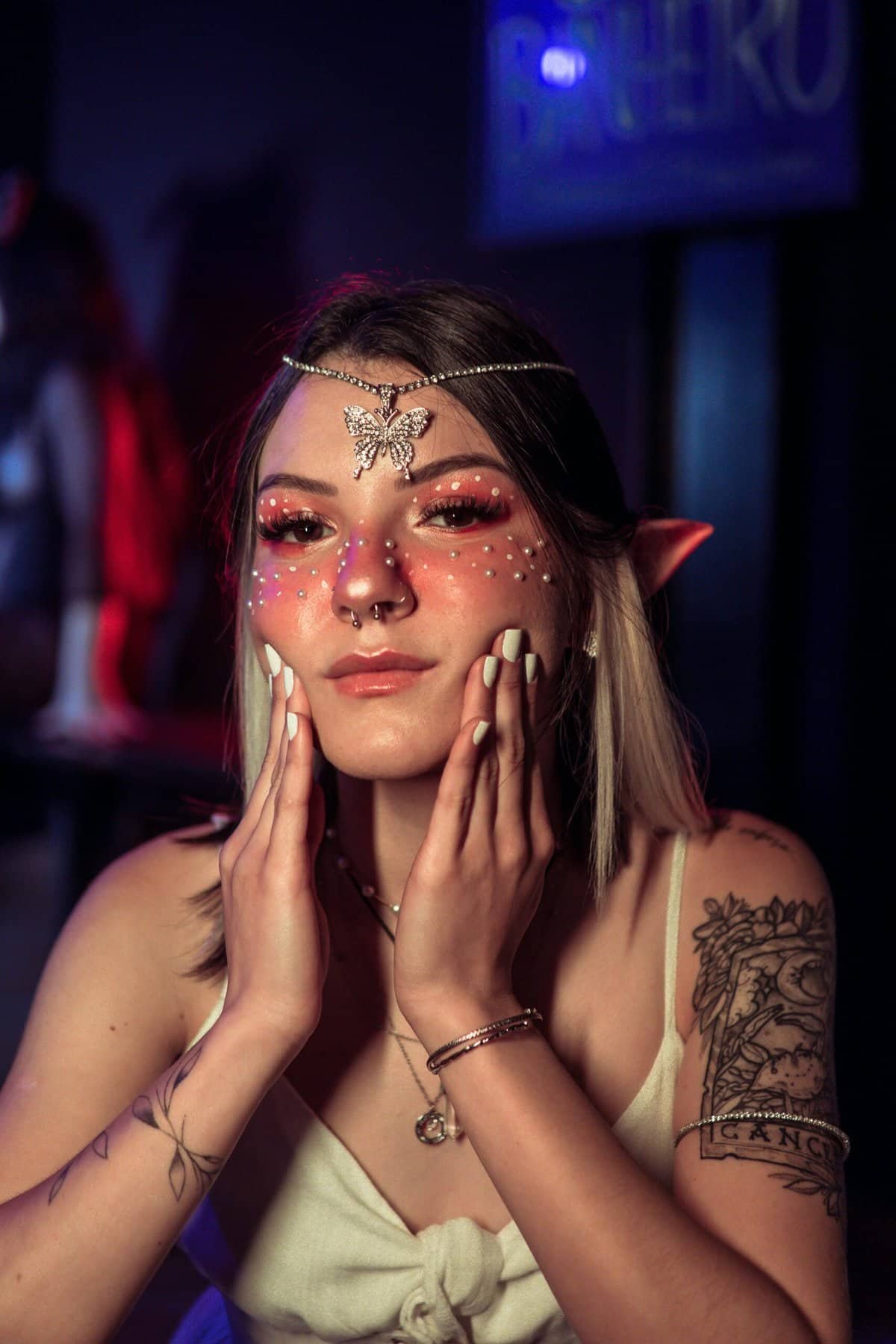Are you a talented makeup artist seeking new opportunities and creative freedom? Look no further! In this article, we will explore the world of freelance makeup artist jobs and all the exciting possibilities that come with it. Whether you’re a seasoned professional or just starting out, there are countless opportunities waiting for you to showcase your skills and make a name for yourself in the beauty industry. Join us as we uncover the ins and outs of this dynamic and ever-growing field, and discover how you can turn your passion for makeup into a successful freelance career.
Overview of Freelance Makeup Artist Jobs
What is a freelance makeup artist?
A freelance makeup artist is a professional who provides makeup services on a self-employed basis, without being tied to a specific employer or salon. They work independently and have the freedom to choose their clients, projects, and schedule. Freelance makeup artists often work with clients for special occasions such as weddings, photo shoots, fashion shows, and events.
Advantages of freelance makeup artist jobs
There are several advantages to pursuing a career as a freelance makeup artist. Firstly, freelancing allows you to have control over your schedule and choose the projects that align with your interests and goals. You have the flexibility to set your own rates and work with clients who appreciate and value your skills. Additionally, freelancing offers the opportunity to showcase your creativity and express your unique style through various makeup looks. It also allows you to build strong relationships with clients, which can lead to repeat business and referrals. Lastly, freelancing can provide a higher income potential compared to working for an employer, as you have more control over your rates and can take on multiple clients concurrently.
Challenges of freelance makeup artist jobs
While freelance makeup artist jobs offer numerous advantages, there are also some challenges to be aware of. One of the primary challenges is the need to consistently find clients and secure bookings. As a freelancer, you are responsible for your own marketing and networking to build a customer base. Additionally, the makeup industry is highly competitive, and it can be challenging to stand out and establish yourself as a reputable freelance artist. Another challenge is the irregularity of income, as bookings may not be consistent throughout the year. Freelancers also often face the pressures of working independently, as they are responsible for managing all aspects of their business, including finances, contracts, and administrative tasks. Nevertheless, with proper planning and perseverance, these challenges can be overcome, and a successful career as a freelance makeup artist can be achieved.

Skills and Qualifications
Technical makeup skills
As a makeup artist, having a comprehensive understanding of various makeup techniques is crucial. You should be skilled in applying makeup for different occasions, ranging from natural everyday looks to more dramatic and specialized looks for events like weddings or photo shoots. It is essential to be proficient in techniques such as contouring, highlighting, and blending to enhance facial features and create a flawless finish. Mastering different application techniques, including working with brushes, sponges, and fingers, is also important to adapt to the varied needs and preferences of clients.
Knowledge of different skin types and tones
To effectively work with clients, freelance makeup artists need to have a deep understanding of different skin types and tones. This knowledge allows them to provide tailored recommendations and create custom makeup looks that complement each individual’s unique complexion. Understanding the undertones of different skin tones, such as warm, cool, or neutral, helps in selecting the right foundation, concealer, and other products to achieve a harmonious result. Additionally, being familiar with the challenges and requirements of different skin types, such as oily, dry, or sensitive skin, helps in choosing suitable products and techniques for each client.
Understanding of makeup products and tools
Having a comprehensive understanding of makeup products and tools is essential for a freelance makeup artist. This includes knowledge of various cosmetic brands, their product ranges, and the quality of their formulations. It is essential to stay updated with the latest makeup trends and innovations in the industry, as new products are continuously introduced. Additionally, being proficient in working with a wide array of makeup tools, such as brushes, sponges, and different applicators, enables artists to achieve precise and professional results.
Creativity and ability to follow trends
Being creative and having a keen eye for aesthetics is a vital attribute for a successful freelance makeup artist. Creativity allows artists to think outside the box and create unique and personalized makeup looks for their clients. It involves the ability to experiment with colors, textures, and techniques to achieve desired effects. Moreover, keeping up with the latest makeup trends is crucial to offer clients modern and fashionable looks. The ability to adapt these trends to suit different individuals while still incorporating the client’s preferences is a skill that sets freelance makeup artists apart.
Communication and customer service skills
Strong communication and customer service skills are crucial for a freelance makeup artist. When working with clients, it is important to listen attentively to their preferences, concerns, and expectations to ensure their satisfaction. Clear and effective communication helps artists understand and deliver the desired makeup look. Additionally, being able to articulate professional and appropriate advice regarding skincare, product choices, and application techniques enhances the overall client experience. Positive interactions and exceptional customer service skills also contribute to developing long-term relationships and gaining referrals.
Ability to work independently
Freelance makeup artists must be self-motivated and capable of working independently. They are responsible for managing their own business, including finding clients, scheduling appointments, and handling administrative tasks. Being proactive in seeking out opportunities, networking within the industry, and actively promoting your services is essential for success. Freelancers must possess excellent time management and organizational skills to effectively juggle multiple clients and projects simultaneously. Additionally, being self-disciplined and accountable for meeting deadlines and client expectations is crucial when working independently.
Time management and organizational skills
Time management and organizational skills are vital for freelance makeup artists to effectively handle their workload and maintain a professional image. Proper time management ensures that you are punctual for appointments and have ample time to complete each makeup session without rushing. It is essential to allow for travel time and consider factors that may impact the makeup application process, such as dress rehearsals or specific event schedules. Organizational skills are necessary for keeping track of client bookings, managing inquiries, and maintaining an updated portfolio. Additionally, having a well-organized makeup kit and workspace allows for efficient and time-effective preparation for each appointment.

Building a Portfolio
Importance of a makeup artist portfolio
A portfolio is a crucial tool for freelance makeup artists as it showcases their skills, style, and versatility to potential clients. It serves as a visual representation of your work, allowing clients to assess your capabilities and choose an artist that aligns with their vision. A well-crafted portfolio helps convey professionalism, creativity, and attention to detail, which are essential qualities that clients look for in a makeup artist. Having a portfolio also serves as a reference and point of discussion during consultations, enabling clients to communicate their preferences and for artists to present their previous work as inspiration.
Types of work to include in a portfolio
When building a makeup artist portfolio, it is important to include a diverse range of work that demonstrates your expertise in various makeup styles and techniques. Some essential components to include are bridal makeup looks, both traditional and modern, to showcase your ability to create timeless and elegant looks. Including fashion and editorial makeup looks highlights your creativity and ability to work with avant-garde styles. Additionally, incorporating special effects and fantasy makeup shows your versatility and proficiency in makeup application for theatrical purposes. It is also beneficial to include makeup looks on individuals with different skin tones, ages, and ethnicities to demonstrate your ability to work with a diverse clientele.
Tips for creating a professional portfolio
Creating a professional portfolio requires careful curation and attention to detail. Start by selecting a variety of high-quality images of your work that showcase your skills and style. Ensure that the lighting, composition, and overall presentation of each photograph are visually appealing and accurately depict the makeup. It is recommended to include a mix of close-up shots to emphasize the makeup details and full-face images to showcase the overall look. Avoid using overly edited or filtered images, as they may misrepresent the actual makeup application. Consider organizing the portfolio in a chronological or thematic order to create a cohesive and engaging narrative. Finally, invest in a professional-quality portfolio book or create a digital portfolio that can be easily shared with potential clients.
Updating and maintaining your portfolio
To stay relevant in the industry and attract potential clients, it is important to regularly update and maintain your portfolio. As you continue to refine your skills and gain experience, replace older images with your latest and most impressive work. Keep your portfolio current by including recent makeup trends and styles that are in demand. Remove any images that no longer represent your current skill level or style. Additionally, gather testimonials and feedback from satisfied clients to include in your portfolio, as they can provide valuable social proof of your abilities. Remember to also update your portfolio with any additional qualifications, certifications, or recognition you may have received.


